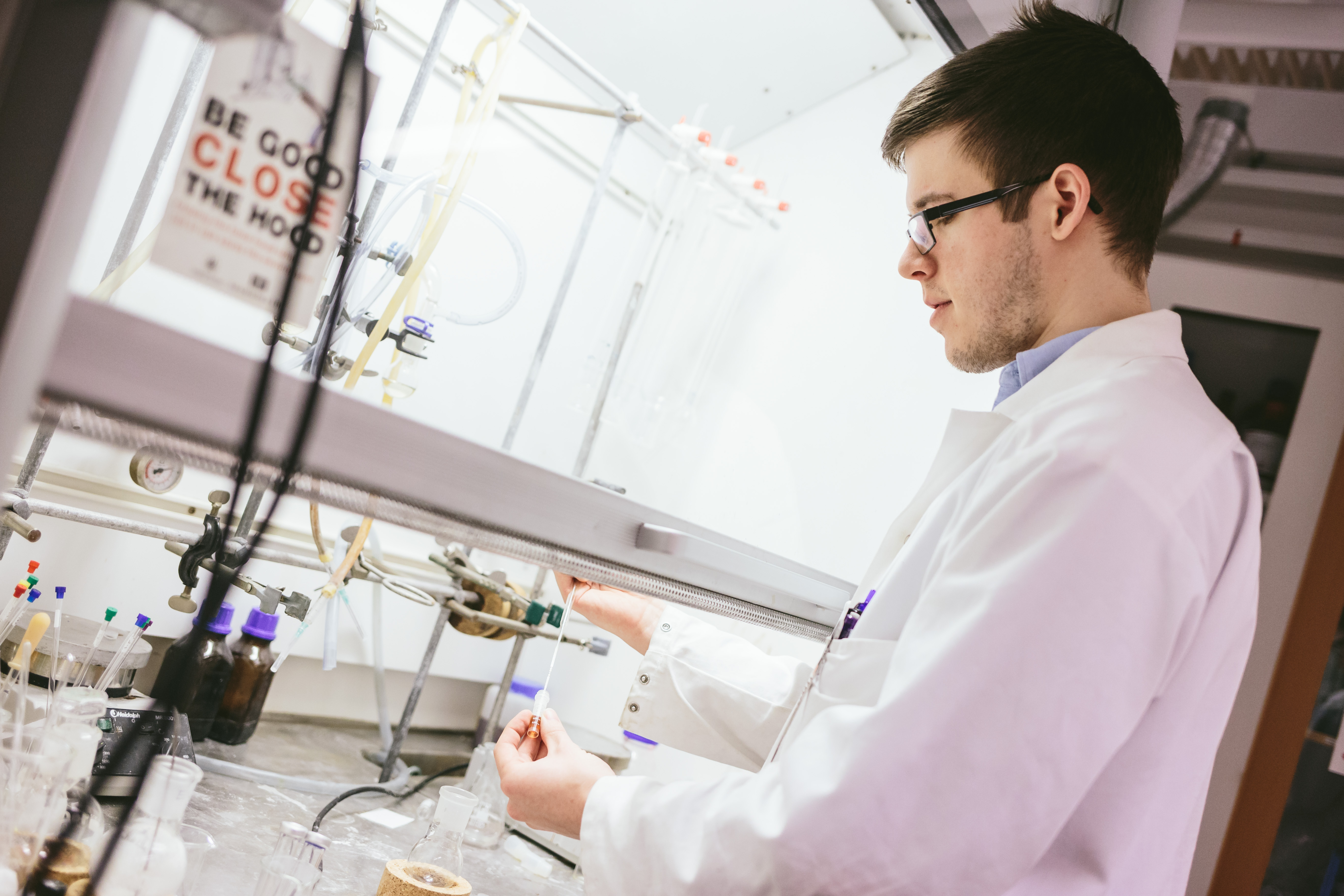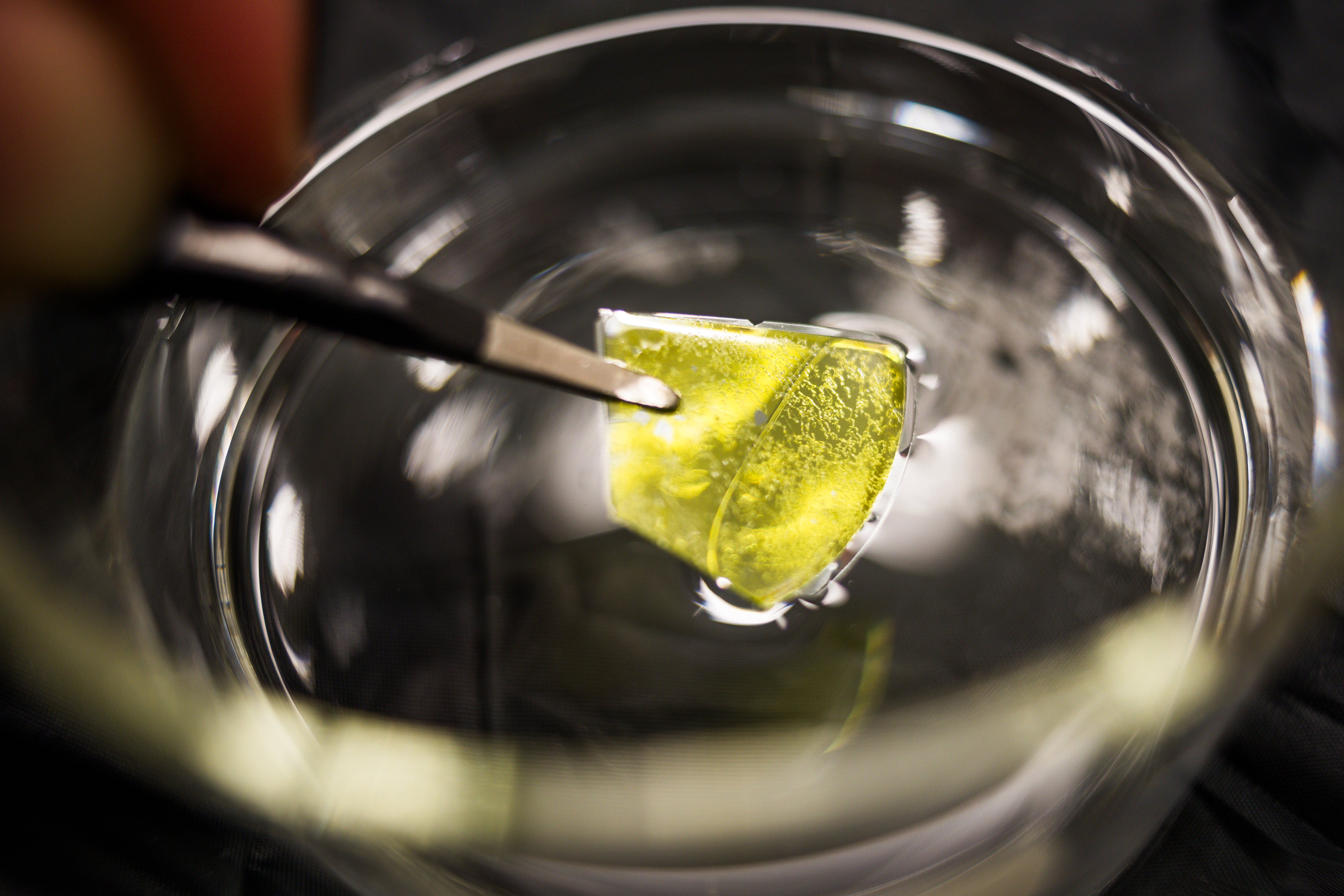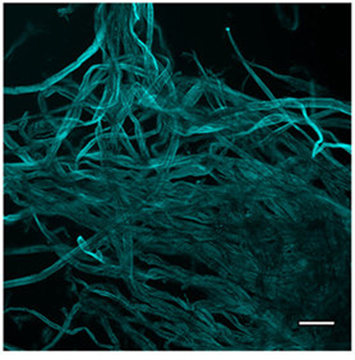Life itself is a quintessentially chemical process, and biological chemistry has a prominent position at LiU. A detailed understanding of the processes of life can be obtained only by studying biological molecules.
This is particularly true for proteins, which are important building blocks in the body and control all the chemical reactions that take place in the cell. Protein molecules are built up from thousands of atoms, and the complex shape of a protein molecule determines its biological function. It has become clear in recent years that many serious diseases, such as Alzheimer, Creutzfeldt-Jakob (“mad cow disease”) and Parkinson, are a result of proteins irreversibly adopting the wrong structure. Research has for this reason been focussed on understanding how the complicated structures are formed and why sometimes things go wrong. Chemistry researchers at LiU are also developing reporter molecules and drugs to use in the diagnosis of these diseases, and to block the harmful proteins. Proteins involved in the development of cancer, malaria and infectious diseases are also intensively studied, using the most advanced equipment available.
LiU researchers also participate in the fight against “designer drugs” or “legal highs”, which have rapidly become established on the illegal drugs market and constitute a serious social problem. The scientists are developing new interesting methods to detect unknown enzymes in microorganisms. These can then be used in biotechnology applications, one example of which is the more efficient production of biogas.
Advanced research into materials science is also a feature of chemistry research at LiU, involving both experimental and theoretical studies. One important region is the manufacture of new electronic materials using a method of synthesis known as “chemical vapour deposition” (CVD). This method has played a crucial role in the development of modern electronics devices such as mobile phones and computers.
In the field of energy, the researchers are particularly interested in the possibility of reusing carbon dioxide, together with hydrogen gas, to produce energy-rich hydrocarbons, methanol and dimethyl ether, as fuels for a sustainable society. Interest in this case is principally directed towards the catalytic processes that promote the reaction between carbon dioxide and hydrogen gas. Theoretical modelling plays a central role in research into CVD and into carbon dioxide reuse. The materials science research for this reason has its roots in not only inorganic chemistry but also physical chemistry.


